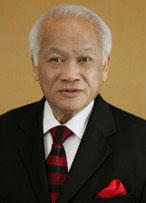[Editor’s Note:Dr. Rey – a retired physician, professor and politician – shares his insights on this topic as the First Ministers – the Prime Minister and 10 Premiers – actively negotiate a new Health Accord.
A champion of Canada’s Medicare since serving as an MP and cabinet minister, and following retirement, he draws from his political experience, including tabling a motion in the House of Commons to preserve Medicare. He had spoken on the topic in England, Japan, and the Philippines.Asformer Director of the Cystic FibrosisCenterand Professor of Pediatrics and Child Health at the Winnipeg Children’s Hospital and University of Manitoba Faculty of Medicine, he brings his perspectives gained from working with varied health care workers and leading a multidisciplinary health care team.]
February 1, 2023: It has been a decade and a year since I wrote, in anticipation of the then expiring 2014 Health Accord, for my Medisina at Politika column the piece, Canada’s Medicare: Securing the Future (Pilipino Express.February 1, 2012).I concluded mycommentary with this three-statement paragraph: “Indeed, federal leadership holds the key to sustainability of Canada’s Medicare. Canadians have a duty to watch! Only then can we secure the future of Medicare.”
I feel this concluding paragraph – now more than a decade old – remains applicable today as Canada’s First Ministers – the Prime Minister and the Premiers – gather around the table and come to a consensus on how best to cure Canada’s ailing health care system and secure the health and wellness of all Canadians.
What is at stake?
At stake is the sustainability of our multi-billion-dollar health care systemand its five national standards as defined in the Canada Health Act of 1984: “1) single-payer, not-for-profit, publicly administered, 2) comprehensiveness(to ensure the province or territory (P/T) health care insurance plans cover all insured health services provided by hospitals, physicians or dentists); 3) universality(to ensure all insured residents of a P/T are entitled to the insured health services provided by the P/T health care insurance plan on uniform terms and conditions); 4) portability (to ensure residents moving from one P/T to another must continue to be covered for insured health services by the “home” jurisdiction during any waiting period – up to three months – imposed by the new province or territory of residence); and 5. accessibility(to ensure that insured persons in a province or territory have reasonable access to insured hospital, medical and surgical-dental services on uniform terms and conditions, unimpeded, either directly or indirectly, by user charges or extra-billing, or other means).”
Equally at stake is the ban on extra-billing for health services rendered and user fees for use of facilities.
Alsoat stake– and most importantly – is adequacy of the present system to adequately address the expectations of Canadians now and into the future, in light of the great disruptions brought about by the COVID-19 pandemicand the already compromised system even before the pandemic,together with the “increasing complexity” of medical advances and strain on the workforce.
Wants and wishes from the federal and the provincial camps
We have learned from the media that the 10 provincial governments want the federal cash health transfer (CHT) to increase from 22 percent to 35 percent, that is, upto $42.5 billion this year, and 6 percent yearly going forward. In addition, they want more flexibility in program delivery which, admittedly, is an exclusive provincial jurisdiction under the Canadian Constitution.
The federal camp,while admitting that there would be an increase, insists on reform to the structure of the system to ensure long-term, measurable and agreed-upon outcomes, not quick short-term fixes. It wants assurance that a coordinated, collaborative approach are agreed upon with respect to use of innovative technology and sharing and use of data to enhance delivery of health care, including avoidance of wasteful duplications, unacceptable delays and unnecessary costs, and even potential harm and preventable deaths. Although the federal position is clearly encroaching on the provinces’ exclusive jurisdiction on health care delivery, recall that it is reminiscent of how Canada’s Medicare has evolved from one province to pan-Canadian. It needed the use by the federal government of its spending power, that is, cash transfer to provinces to share in the health care budget upon mutually agreed criteria and conditions – the five national standards and prohibitions against extra-billing and user fees that underpin Canada’s Medicare.
Through good faith consultations and negotiations – hallmarks of Canadian confederation – an Accord has always been achieved, not without political pains I might add.
What would bring the two camps together when they meet in Ottawa on February 7th? Most certainly, the federal government could or should continue to insist that new budgetary dollars be spent “to buy change” or reform – to modernize Medicare.
Taking Back Health Care: How to Accelerate People-Centred Reform Now
How timely that the Public Policy Forum(PPF) – a non-partisan organization that has been intimately engaged for some three decades in public policy dialogues that have led to a better Canada –just released a week ago on January 23rd its report, Taking Back Health Care: How to Accelerate People-Centred Reform Now.I welcome it somuch that I took the privilege of appropriating in quotes the first part of its title as also part of the title of my column piece.
And how, not so coincidentally perhaps, this Report provides excellent policy insights from experts on the know – nine of them of varied backgrounds and domestic and international perspectives – and thereby provides a very useful and timely reference-authority, as the First Ministers prepare to gather in Ottawa to hammer out a new Accord under the umbrella of the Canada Health Acton the 7th of this month,a decade and a year from when I penned the 3-statement concluding paragraph I have alluded to above.
Not so coincidentally, perhaps, that I am delighted on the thrust of the slightly over 5,000-word Report. I have becomeeven more enlightened after reading the E75 podcast interview (see above photo image as credited). So full of insights that I would venture to say it would be worth the due diligent study by current policymakers and leaders – the First Ministers and their civil service staff – engaged on achieving a new Health Accord.
The Report and the podcast featuring it speak of the paramountcy of Canadians as a people, not as a patient or individual person, as the center of the reform, that is, clearly knowing their expectations for today and tomorrow’s needs.
Modernizing Medicare means a transformation of the health care system’s trajectory. The argument is persuasive that new cash transfers funding be spent “to buy (the needed) change.”The Report’s three “modernizing imperatives” provide the roadmap for a transformative change in the health care system. The nine authors who have unanimously endorsed the Report have brought with them to the Report their varied perspectives. So strong is their endorsement that they feel the implementation of the needed changes must happen NOW.
I intend to go back to this PPF Report, includingits three ‘modernization imperatives,’plus the results of the interview (E75 Podcast with the Report’s two authors – see photo image above)and use them to analyze where the Accord will have come to after the First Ministers’ conference.
Let me make two quotes on the most important challenge: Dr. Danielle Martinnoted:“the most important challenge that we face is we do not have the people in the system to respond to the need. We do not have the team members.”For her part, Dr. Victoria Leenoted: “we really need to delve into the transformation agenda – to transform the trajectory of our health system.”
To sum up, federal leadership holds the key to meaningful modernization/transformation of Canada’s Medicare.
(You may expect a sequel on this topic in the next issue.)


![[Credit: Copied online from the Podcast, Policy Speaking, which featured the interviews, The Future of Healthcare with Dr. Victoria Lee and Dr. Danielle Martin, by Mr. Edward Greenspon, CEO of the Public Policy Forum and host of E75 Podcast released on January 23, 2023.Dr. Lee is Clinical Associate Professor at the University of British Columbia and Assistant Professor at Simon Fraser University; Dr. Martin is Professor in the Department of Family & Community Medicine at the University of TorontoTemerty Faculty of Medicine.]](/images/photos/feb2023/Dr.-Victoria-Lee-and-Dr.-Danielle-Martin.jpg)











